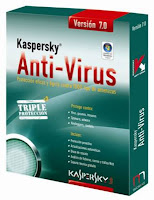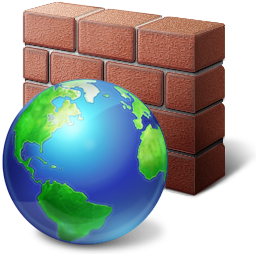Viruses Trojans and Worms Oh My Funny Images
VIR US.....Is there anything more feared in the computer world than the virus? OK , nowadays we don't really fear them all that much. Most commonly we get annoying virus variants that are known as Malware. Some of these programs use virus code and can incapacitate your computer, therefore your antivirus program should pick them up and eliminate them.
A virus by definition is is a computer program that can replicate itself and spread from one computer to another for instance because a user sent it over a network or the Internet, or carried it on a removable medium such as a floppy disk, CD, DVD, or USB drive.
 Viruses are sometimes confused with Worms and Trojan Horses, which are technically different. A worm can exploit security vulnerabilities to spread itself automatically to other computers through networks, while a Trojan horse is a program that appears harmless but hides malicious functions.
Viruses are sometimes confused with Worms and Trojan Horses, which are technically different. A worm can exploit security vulnerabilities to spread itself automatically to other computers through networks, while a Trojan horse is a program that appears harmless but hides malicious functions.
Worms and Trojan horses, like viruses, may harm a computer system's data or performance. Some viruses have symptoms noticeable to the computer user, but many are surreptitious or simply do nothing to call attention to themselves. Some viruses do nothing beyond reproducing themselves.
 In the old days many viruses were written by programmers to show their skills in the exploitation of the code. Many of these coders have since emerged from the underground and are top security experts for major corporations.
In the old days many viruses were written by programmers to show their skills in the exploitation of the code. Many of these coders have since emerged from the underground and are top security experts for major corporations.
For many of them the challenge was not to seek and destroy but to prove themselves in a community of underground rouges by writing the most sophisticated code available that could thwart even the most high tech security measures of the time. In many cases, the viruses payload would simply be a cryptic warning and some really cool graphics affects, in other cases the viruses would have a destructive payload such as formatting the Hard Drive, or corrupting files and folders.
These days computer viruses tend to have much more nefarious purposes such as stealing private information like credit card, social security numbers and even your identity itself. These viruses can direct you to websites, spy on your browsing habits and even use your computer as a bot to send email and other spam and copies of itself to your unsuspecting friends. Many of these viruses originate overseas, mostly in China, Latin America and Russia. So as Viruses originally came from enterprising young computer hackers, they are now predominantly a profit making enterprise.

Evgeny Kaspersky (Creator of Kaspersky Antivirus), said in an interview with Der Spiegel that the internet could become a war zone; "Everything depends on computers these days: the energy supply, airplanes, trains. I'm worried that the Net will soon become a war zone, a platform for professional attacks on critical infrastructure. " He also cites the Power outages in North America in August of 2003 as an example; "Do you remember the total power outage in large parts of North America in August 2003? Today, I'm pretty sure that a virus triggered that catastrophe. And that was eight years ago."
With this in mind, how do we then end users ever feel safe? Should we go buy the most expensive firewall and antivirus programs at a heavy price? Should we ditch our Operating Systems for something that is more secure and not as vulnerable to infection? Or just pull the plug on our computers, keep off the internet altogether, shrinking back into our caves in fear?

Realistically we don't have to be that drastic. There are very secure methods of avoiding infections altogether and there are ways of keeping your existing system protected and they are not costly or too technically difficult to master.
Of course always follow safe practices when visiting websites, opening attachments, and stay away from the illegal file sharing programs! You all know this, right? I thought so. So I wont go through the lecture your mom should have given you with your first computer. Lets move on bigger and better security matters and I will give you some free ways to keep your computer as safe or safer than if you only used the paid alternatives

Primar y Antivirus (Your basic defense): Use the best rated one. Use one that is not a hog of your limited system resources. Use one that is Free? Look no further than Microsoft Security Essentials for this basic and crucial antivirus protection. Yes, Microsoft has this one right. They have a great team of 'coders' who put this one together.
Use it as your primary antivirus. I highly recommend this program if you have a Windows operating system. Also make sure you have the latest version of the Malicious Software Removal Tool form Microsoft (It should come as part of your automatic updates or you can download it here if you think you have an infection). These two tools will ensure a basic level of protection for your computer.
Secondary Antivirus (additional protection for your PC): You can't have more than one antivirus program running on your computer can you? Well, technically you can, but if you have two full fledged antivirus programs running they are likely to conflict and cause system slowdowns.
There are products however, that can work alongside your antivirus program and provide additional protection. For computers that have teenagers downloading music and video I would recommend having this additional layer of protection. I personally use either Immunet or ThreatFire in cases where I know the user is likely to return to dangerous sites and practices.

On Demand Antivirus (for on demand scans): When your primary antivirus reports a clean system and you still have weird things happening on your computer like pop-ups, extra tool-bars you can't get rid of, or antivirus programs and registry cleaners you know you did not install that are showing up in your face all the time, it's time for a second opinion.
These programs change and sometimes finding the free version and not the trail version can be difficult. My links will take you right to the free download. Use the free versions of these programs to check your system on an as needed basis. You don't need the trial versions or the paid versions to do this. And trust me, these are industry standards. All computer geeks and even most repair shops rely on these programs.

Firewall (the brick wall between you and the internet): My advice, use the Windows Firewall. Check your firewall settings to make sure that you do not have exceptions to programs you don't trust. Just go to Control Panel, Security Center and then Firewall, then to the Exceptions tab. You'll see a list of programs that have the ability to surpass your firewall. Uncheck anything suspicious and check back frequently. Many programs will create exceptions to your firewall to access the internet. This access can be for legitimate or nefarious purposes. So with the knowledge of what is breaching your firewall, you can decide.
If you install any additional firewall protection it's on you. Many if them are complicated and can block your access to the internet entirely. If you are computer astute you may want to play with Zone Alarm or Tiny Personal Firewall. Personally, I found no need to have this program other than to monitor inbound and outbound IP addresses on my PC. I can get all that info from my router log. So it is up to you the user.

Safe Browsing (your web browser that actually displays the text and graphics on the web-pages you visit): The browser has become the tool of the hacker. They not only can exploit the browser itself but any programs that you use to view that information. Examples of these programs are multiplicative. Adobe, Flash, Java, and a lot of other programs are plugged into your browser to enable you to view content on the WWW. So if your browser or any program on your computer that helps you to view data or do the things you do can be exploited, then be assured, hackers and virus writers are working on exploiting it.
This is why we have poisoned web pages. Web pages that can send infected code to your browser or to a plugin on your browser that is vulnerable. Then the code can use that exploit to further compromise your system. Often spyware can redirect you to poison site that can infect your system. For example, I often get emails from friends who are telling me to visit a website. I know the email is uncharacteristic of my friend, mainly because they have never offered me cheap Viagra, or Penis Enlargement, or meeting hot singles to me before.
What has likely happened is there email address as been compromised and taken hostage by the Hack Net. This is not uncommon today so be aware. In any case if you click on the link it may take you to a poisoned website where your computer could also become infected. Either through a plugin or through your browser itself.
Avoid this in a couple of ways. Don't use Internet Explorer. It is the main target of the Hack Net. I prefer Chrome, but others may prefer something different there are plenty of free ones that you can download. These alternative web browsers are not as vulnerable simply because the hackers are targeting the most popular browser. a list of options can be found 'here'. I would steer clear of Firefox as well because its popularity has made it a target too.
Super Secure Browsing (for when you are doing sensitive transactions): For those times you feel really insecure about either your computer or the location you are connecting to the internet at you need incognito options for browsing the web. In these cases I recommend simply using a Linux based Live CD to boot your computer. This will provide you with a secure Operating System that is not going to be vulnerable to viruses. It will also leave no trace of your activities on the local computer for a hacker to backtrack.

You can also run Linux or a version of Windows in a Virtual Machine using Virtual Box. This gives you a virtual sandbox that is segregated for your Computers OS to play in. You can even install a version of Linux alongside Windows in a dual boot configuration. Check out Joli Cloud OS for a very simple Linux distribution that can also synchronize your programs, applications and files on multiple computers or even in the Chrome web browser.
There is also the option of using a virtual browser such as Dells Kace browser. When using the Secure Browser any changes or malicious files inadvertently downloaded from the Internet are contained within the Secure Browser, keeping the underlying operating system safe from infection. If the Secure Browser gets infected you can simply reset it and save yourself a system restore.
Updates (keep your programs up to date with all the latest security patches): Windows updates itself a lot. These updates and service packs patch known bugs and holes in the OS and you should always allow Windows Update to automatically download and install updates. But what about your other programs?
To start with you can allow Windows programs to be updated through Microsoft Update. This will take care of most of your Microsoft Programs.
Programs like Adobe Flash, Java, and QuickTime can also be an open door to Viruses and Trojans and should be updated on a regular basis. How will you keep track of all this additional software? You could allow it to auto-update but that can hog your system resources.

For a comprehensive approach to updating the rest of your programs I rely on Secunia Personal Software Inspector. Secunia will scan your programs and give you a security rating based on its findings. In most cases it will also provide easy to use links for updating insecure programs. Secunia will also give you recommendations for programs that are obsolete or end of life. This is an awesome program that sometimes finds insecure programs I did not even know were on my PC. In those cases I can remove the program and avoid any insecurities.
My rating right now is 98 percent because I choose to keep a few legacy apps that are no longer supported by the company.
Other Useful Tools (for recovering your computer after an infection): If your computer got a bug and you have removed the thing but your system is still behaving badly you can use these utilities to do some cleanup.
You can restore your browser and start-up to default settings by using HijackThis. A small but powerful utility that will remove pesky add ons to IE.
Combofix is designed to remove the nastiest of the known Malware infections.
Revo Uninstaller to remove programs from your computer. Even the stubborn ones who's uninstaller is broken.
CCleaner for cleaning up crap files on your computer and fixing your system registry, especially after removing Viruses and Malware.
So there you have it. This is by no means a full tutorial on how to use these programs but I can promise you that if you master these programs, your computer will be cleaner and more secure than ever before.
Use these programs at your own risk of course. Virus removal can sometimes break your computer depending on the nature of the infection. And of course if you have any doubts, come see our highly trained crew at Computers for Charity. We will always give you a free evaluation and recommendations and if need be can provide you with Affordable Computer Solutions for a small donation to the charity!
Source: https://computersforcharity.blogspot.com/2011/09/viruses-and-trojans-and-worms-oh-my.html
0 Response to "Viruses Trojans and Worms Oh My Funny Images"
Post a Comment